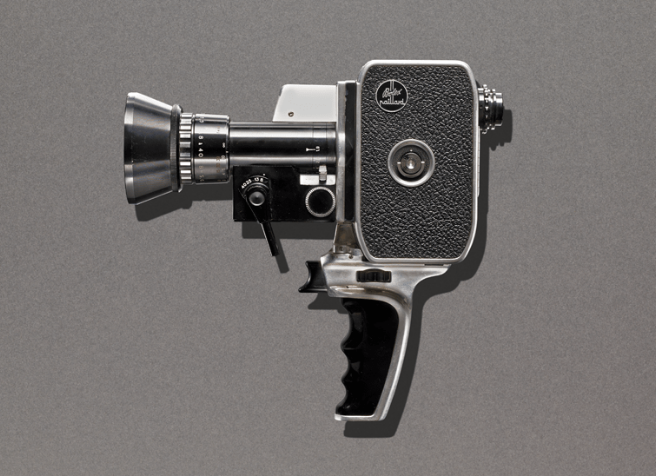So, you’ve been volunteered to appear in an online video or company film?
That’s great since ‘hearing from company experts’ is the third most important thing potential customers want. (After price information and market comparisons.) It’s a chance for you to shine, to get over your views and get noticed. Unfortunately for the unprepared, it can also be a daunting, difficult experience.
But it doesn’t have to be that way. Here are 10 simple steps to help you look the part on film and perform like a pro.
1. Be yourself – at your best:
If you know you’re going to be on film, be ready. You have to be yourself, but the best version of you. Be well-rested. Feel energised. Get a haircut.
2. What to wear
Look the part. Imagine you’re going for an interview for a job you really want. Even if you’re in tech and a ‘jeans and t-shirt’ kind of dude, lift it a notch – try a pair of nice chinos and a casual shirt. If you’re a suit and open neck shirt guy, go for a tie.
For women, there are more options but I always recommend a jacket or at least something with long sleeves, and a neckline that’s not low. You don’t want to wear anything too distracting either, unless you’re the business world’s answer to Timmy Mallet.
You want people paying attention to you, not your whacky dress sense. For technical reasons, it’s best to avoid fine checks and patterns too.
3. What’s your specialist subject?
You’re an expert, on what? Which defined problem can you help your audience solve? Which questions are they asking that you can answer? This takes you directly to the content strategy of your business.
A simple SEO exercise can highlight the key themes in your niche – and help ensure that your topic isn’t too general.
4. What’s your angle?
We’re living in the attention economy – where the most precious commodity is people’s time and focus. And yet we forget that, as the psychologist Tversky and Khaneman observed, similarity is the single biggest source of forgettability.
So, what’s your big point of difference – a clear idea that’s going to help you stand out and gain attention? Since industries tend to congregate around similar models and features, the difference may well be attitudinal.
What can you say that’s distinctive, and how can you say it, so that it resonates with your audience?
5. Prepare like a pro
Make time. Sure, you’re busy. There are always more urgent things to be done in your day job than preparing for something as insignificant as a company film. Except that it is important.
Yes, it’s good for SEO and sales and self-presentation (as well as not feeling like a berk while a film crew looks on). But it’s also digital history in the making. Good or bad, your video won’t go away. It will be online, like forever.
So, you’ve got one shot to be the best you can be. And that means being prepared.
6. Sort out your script
You may not need an actual written script but it really pays to sort out in your mind what you’re going to say.
Have the key points clear in your mind, and make sure you can get them across swiftly and clearly, in the right order.
7. Aide-memoire
Very few people can talk off the cuff without hesitation or repetition, or just going off at tangents. There are basically 4 ways to help yourself stay sharp on topic. It’s largely a matter of personal style which works best for you:
- You can memorise the whole damn thing. This is harder than it seems and, to be truly rehearsed, you need to be able to get your speech out while, say, ironing a shirt. If you can’t, you’re not really ready to perform and stay relaxed.
- Memorise your key messages in bullet points. This has the benefit of keeping your points in order, and helping you sound spontaneous. You still need to be rehearsed though, just not too rehearsed. There’s a fine line between seeming to deliver the message ‘off-the-cuff’ and visibly racking your brains to remember how you said it previously.
- Have an off-camera interviewer ask you questions. This can give your answers a more conversational tone. It can be easier to do and feels more natural, especially if you look off-camera to engage the interviewer. However, the same points about being ‘prepared but not too prepared’ still count.
- Use an auto-cue. These days free teleprompters are available for iPad so there’s no excuse not to use one or rehearse beforehand. It can be a huge help in reducing stress on the day. However, reading from a teleprompter is still a skill that requires practice. When someone woodenly reads a script while their eye-line obviously follows the moving text, it’s not great. Again, practice is key.
8. Write for the spoken word
If you’re preparing a script, write like it’s meant to be said out loud. Many literary flourishes just won’t work unless you’re Larry Olivier.
Read it out loud and take a look at anything you stumble over.
9. Film yourself
Your phone is a great video camera. Turn it sideways and record yourself doing your spiel. It can be an uncomfortable experience since it may reveal how far you are from the standard you expect from yourself.
However, it’s probably better than the old method of practising in front of our better halves, who can be unwittingly lethal to self-confidence. And that is the name of the game – building your own self-confidence by being prepared.
10. On the day
If you’re using a professional set-up to produce your online video content, don’t be intimidated. There will be more people than you expect, bright lights and a big camera.
A small red light usually comes on when it’s recording – ignore it. Be positive and kind to the film crew.
They want to see you do well. Give them time to adjust your lighting, set your sound and make sure you’re in focus.
If they suggest a little powder to de-shine you, go for it. Even if the idea makes you feel vain or silly, the make-up won’t show on screen and helps you avoid looking sweaty and untrustworthy.
If you’re shooting yourself, just keep the camera steady. Make sure there’s enough light and, critically, make sure the sound quality is good.
And if you do all of that, your Oscar awaits.



